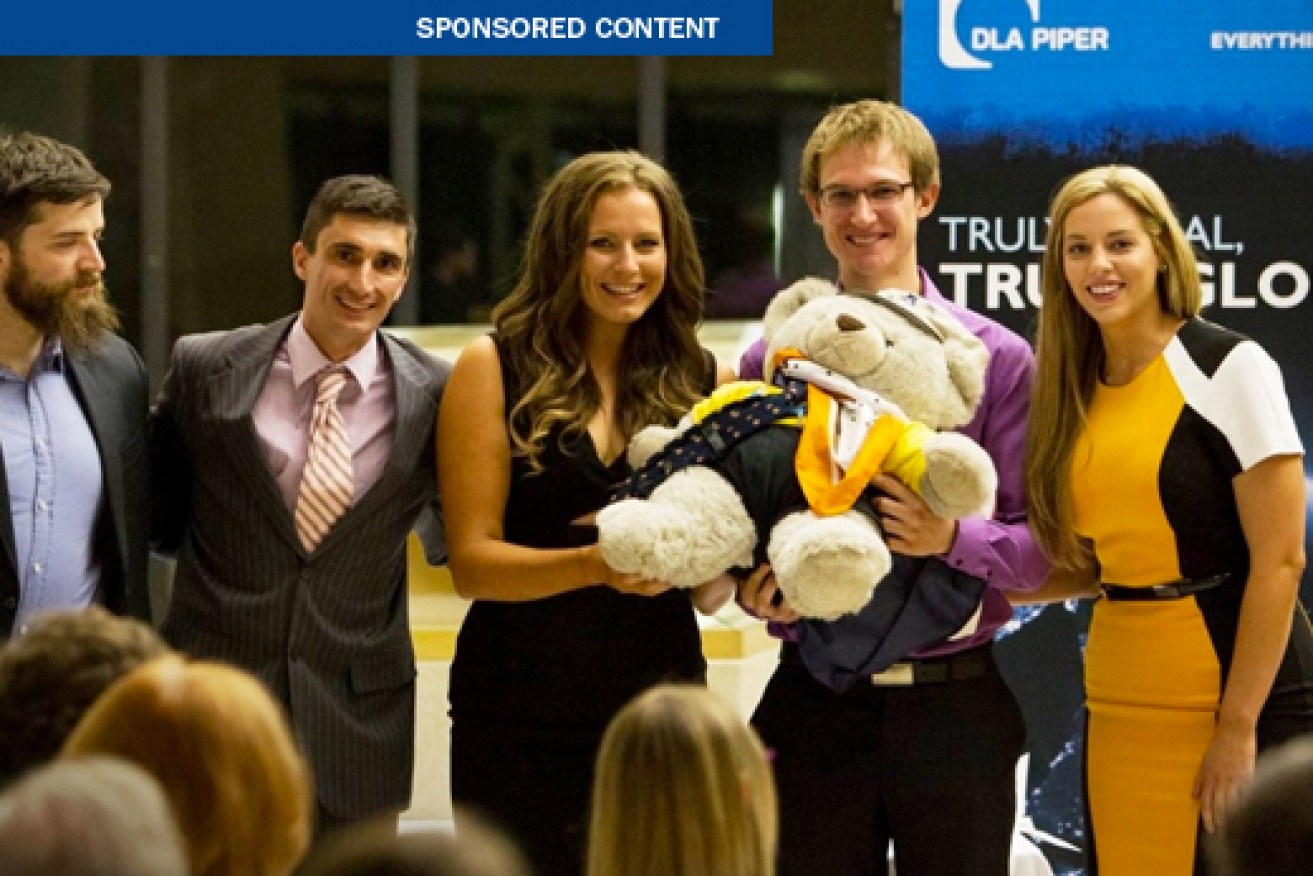
Law students win hearts and minds at Jessup Moot

Flinders University's Jessup Moot team, from left to right: Edward Shorne-Holden, Robert Peschel, Carrie Eames, Harry Crawford and Philippa Ewens.
Flinders law students have again proved they can hold their own against the top law schools in Australia by winning the Best and Fairest and Spirit of Jessup awards at this year’s Jessup Moot.
The Jessup Moot, which is one of the most daunting experiences any law student can face, is based upon the The International Court of Justice (ICJ) and sees students subjected to forensic analysis, unrelenting questioning and uncompromising standards by some of Australia’s top international lawyers.
The ICJ’s judicial processes and physical environment are replicated in minute detail in Canberra, making it as challenging an environment as most lawyers are ever likely to face.
And if that isn’t difficult enough, the students also have to pit their legal skills against students from the most successful and well-resourced law schools in the country.
This year’s team, comprising of Edward Shorne Holden, Robert Peschel, Carrie Eames, Harry Crawford and Phillipa Ewens, also won a moot, which makes them only the second Flinders team to do so, following similar success last year.
Participation in the Jessup Moot involves months of preparation, with all of the teams having to submit detailed documentation in advance of arguing their cases in Canberra.
Dr Grant Niemann, Senior Lecturer in Law at Flinders University, and a first Senior Trial Attorney of the International criminal tribunal for the former Yugoslavia, paid tribute to the team, and singled out Robert Peschel, the first deaf student to take part as an oralist, for special praise.
“People outside of the profession think about this as someone getting up and speaking while the judges sit quietly, but that’s now how it works,” Dr Niemann said.
“In an appellant court, or court dealing entirely with matters of law, the skill is in having legal conversations, which means the lawyer will say things and the judges will ask questions.
“That means you have to not only be across all of the topics but also engage in this highly sophisticated legal conversation which is entirely unscripted.
“Imagine trying to do that if you’re deaf, so can’t hear, or sometimes even see, what is being said because you’re watching an interpreter, or waiting for something to be interpreted.
“So while it was, once again, a fantastic achievement for the team, it was a particularly remarkable one for Robbie, who, in my opinion, would make a good barrister by anyone’s standards.”
Team coach Marina William, who spent months training the team – with the assistance of lawyers from some of Adelaide’s top law firms – said it was hard to overestimate the amount of work that went into preparing for a Jessup Moot.
“For a team from Flinders Law School, which has much less resources than many of the other participating law schools, to win two awards and a moot, for the second year in a row, this reflects the talent and commitment within the team,” Ms William said.
“We are very proud to have been able to build upon the success of last year, and to set a new benchmark for future Flinders Law School participants at the Moot.”




